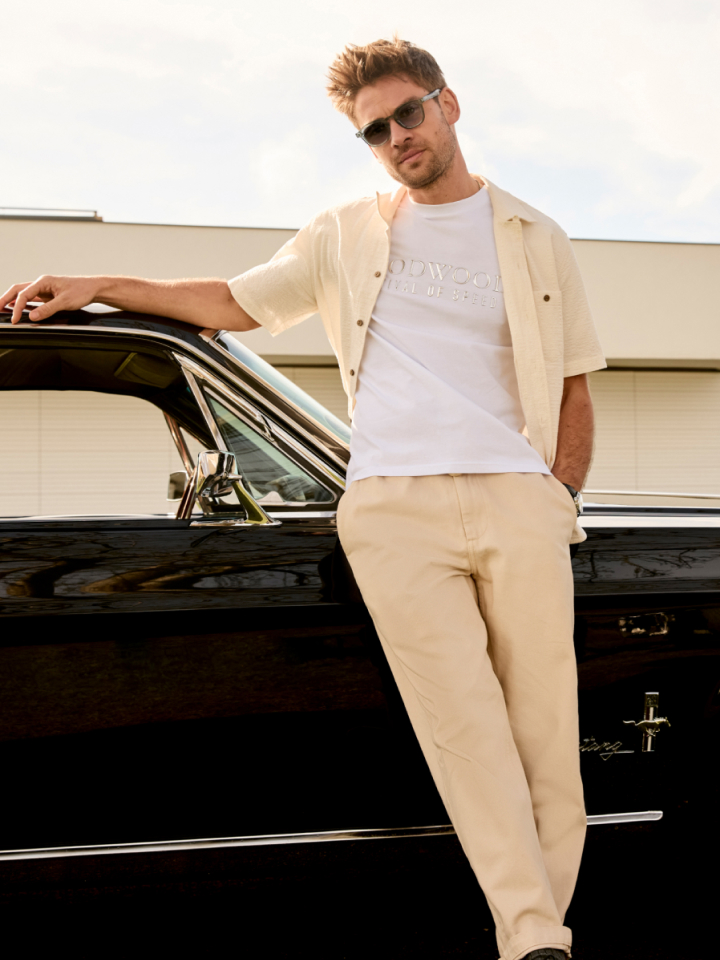OPINION: The way Drive to Survive deals with drivers is problematic
I binged Formula 1: Drive to Survive over the weekend with the purpose of writing a full review here. But somewhere about episode two, the one dedicated to Nyck De Vries, the purpose of this article took a sharp left turn.

Drive to Survive has always made its money from focusing on rivalries within the sport rather than the actual sporting action itself. I’m sure that I’ll write a full piece on the new series and that’ll be on GRR later this week, but in summary it’s a lot of the same you’ve seen before. In fact it’s so focused on individuals and the tensions that it can find in the paddock that Max Verstappen might as well not exist in the new season.
I’ve often felt a little uncomfortable with the way that it approaches these relationships. It’s a voyeuristic form of programming, designed to give the viewer a feeling that they are seeing something they perhaps shouldn’t. But as it shines the light on those who struggle, rather than looking to provide support, or perhaps context, it feels like the team at Box to Box films likes to use them. It wants to face them off against each other and build the narrative it wants rather than find the real one.

So difficult have some drivers found its approach to them that they have, including Verstappen, flatly refused to return for some series. It’s edited quotes to make Lando Norris look less than pleasant and moved sequences to make some drivers seem pretty stupid. It even faked a race win.
But its treatment of the people inside F1 came to a head with episode two of season six, which focused on De Vries. A former Formula E world champion, De Vries won F2 in 2019 before finding his path to F1 blocked by various other drivers. He found success racing in sportscars eventually proved his speed and consistency to win that Formula E crown, becoming the first Dutchman ever to win an FIA World Championship. In 2022 he made his debut in Formula 1, subbing illness-stricken Alex Albon, and impressed, with points in his first ever grand prix.

So it would be fair to say that De Vries has a CV worthy of a proper go at F1. It would also be fair to say that his time in F1 didn’t live up to expectations – ten races, zero points, several incidents. As a new driver to the sport, Drive to Survive of course chose to follow De Vries, especially as he was in a Red Bull-backed team, and under pressure from day one. But there was something distasteful from pretty much the word go about the way it presented De Vries. It wanted him out of the way.
It was Alex Albon who put it best when he said later in the series that the Netflix producers must have “had to change their pants twice” when they found out Daniel Ricciardo might return to F1. In fact the young Thai racer even managed to describe almost to the second how Drive to Survive would present the whole affair.

De Vries was given some air time. In fact it probably totalled about 20 minutes. At no point did we allow him to express why he felt he was struggling, he wasn’t allowed to say how it made him feel. We spent a day in Monaco with him and a friend, by which point the camera felt like it was already itching to move away. The presentation of Ricciardo’s return for a Red Bull test was almost erotic. Such was the salivation of Drive to Survive that an unofficial test at Silverstone was given almost as much time as De Vries career. If you didn’t watch F1 in 2023 you’d think De Vries was some chump who had three races and was binned. The desperation to move on from him meant the timeline was almost impossible to follow.
Perhaps it was actually the perfect mirror for the way Red Bull has treated its drivers not named Verstappen recently. Build them up and dispatch them. Here today, gone tomorrow. Who cares, we have someone we prefer. Either way, watching it felt a little dirty. Ricciardo was given long sections to say how not having an F1 drive made him feel, De Vries got to show how he washes a window and closes a door. Feelings? He’s not worthy of them.

Given how Drive to Survive presents things I imagine that door was probably one he closed months earlier and they threw it in as a visual metaphor. In the end it was a perfect showcase that perhaps De Vries is better off now. Toyota couldn’t move fast enough to secure his expertise for the World Endurance Championship. He might end 2024 as a two-time world champion, he’ll also have another go at Formula E with Mahindra.
If I was a driver entering Formula 1 fresh from now on, I’d find myself mysteriously ‘busy’ whenever Netflix came to call. It’s probably tough enough on mental health dealing with speculation without Netflix then telling the world it loved that you suffered.
Maybe Drive to Survive producers didn’t get enough from De Vries to portray his emotions, maybe they didn’t mean to treat him badly. It probably doesn’t matter to most, but this is how F1 markets itself to the world, and at times it doesn’t look good.
Images courtesy of Motorsport Images.
F1
Formula 1
Drive to Survive
Opinion































































